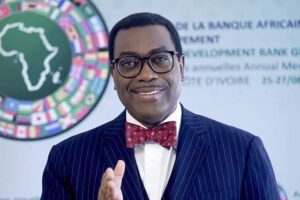Addressing post-COVID-19 development challenges in Africa at the African Economic Conference

In a few hours, the African Economic Conference will open in Sal, an island in Cape Verde off the West African coast. The event is jointly organized by the African Development Bank (AfDB), the United Nations Economic Commission for Africa (ECA) and the United Nations Development Programme (UNDP).
This high-level meeting is scheduled for December 2-4, and the theme is: ‘Financing the development of Africa post COVID-19’. The conference sessions would be held both in-person and virtual.
Policymakers, the private sector and researchers would present papers on the challenges that the pandemic poses to Africa and the alternative solutions to be implemented to enable the continent to recover quickly. Before the pandemic, the six most dynamic economies in the world were in Africa. These are Rwanda, Ethiopia, Ivory Coast, Ghana, Tanzania and Benin, according to the 2020 Economic Outlook published by the AfDB.
But that is no longer the case, after the outbreak of the pandemic. African economies have been strained by lockdown, travel restrictions, low commodity prices, and more.
According to the AfDB, the cumulative losses of Africa’s GDP due to the pandemic are estimated at between $145 billion and $190 billion.
Dr. Akinwumi A. Adesina, President of the AfDB mhas said ; “Sub-Saharan Africa will need $425 billion by 2030” to support its recovery. Given the efforts to be made to fill this gap, the expectations of this conference are important for the recovery of the African economy.
African thought leaders would discuss innovative and sustainable options to finance Africa’s post-COVID development roadmap. They would share their views on opportunities to reshape development finance models in Africa and discuss initiatives developed to increase domestic resource mobilization and improve regulatory responses to emerging and innovative sources of finance, including international financial markets, and digital finance. They would explore issues of mobilizing resources, including domestic resources as well as combating illicit financial flows, improving debt sustainability and the alternative to Africa’s current development finance model.
The high-level dialogue with development partners will allow key development actors in Africa to share their views on how to reinvent development finance after COVID-19. In addition, leaders of development institutions would discuss systemic issues related to the international crisis and the role of the global financial safety net, policy options to manage volatility in capital flows, financial regulatory reforms and the role of financial institutions, climate risks, the growing role of digital finance and how to strengthen global governance from the perspective of their institution. Human development issues, South-South cooperation, sustainable finance, aid, regional integration, and issues related to the African Continental Free Trade Area would also be discussed.
Despite these challenges, there are good prospects for the recovery of the African economy. According to the Annual Development Effectiveness Review, the AfDB is recording remarkable results despite the COVID-19 pandemic.
- Almost 16.5 million people have seen improvements in agriculture
- More than 9 million people gained access to better transport services
- More than 8 million people have benefited of new or improved access to water and sanitation
- COVID-19: the AfDB provided urgent aid to 12.3 million vulnerable households in 31 countries
- The African market has attracted investment in the pharmaceutical manufacturing sector.
By Ibrahim Falola
